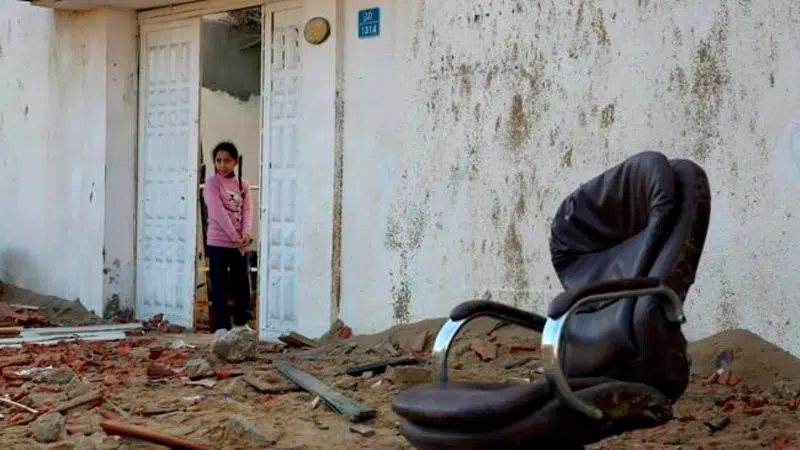
Netanyahu back in Israel, consults with military
JERUSALEM — Israeli Prime Minister Benjamin Netanyahu returned home from Washington on Tuesday, heading straight into military consultations after a night of heavy fire as Israeli aircraft bombed Gaza targets and the strip’s militants fired rockets into Israel.
Schools in southern Israel were cancelled following the violence that threatened to escalate into a major conflict just two weeks before the Israeli elections. The fighting subsided by the morning, though the situation remained tense.
The military massed forces on the Gaza border and imposed restrictions on civilian public gatherings after dozens of rockets were fired toward communities in the area, including one that struck a house in the town of Sderot.


